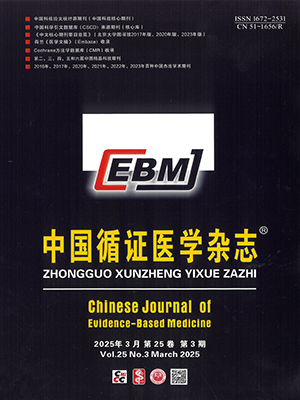| 1. |
Petersen RC, Smith GE, Waring SC, et al. Mild cognitive impairment: clinical characterization and outcome. Arch Neurol, 1999, 56(3): 303-308.
|
| 2. |
Winblad B, Palmer K, Kivipelto M, et al. Mild cognitive impairment-beyond controversies, towards a consensus: report of the international working group on mild cognitive impairment. J Intern Med, 2004, 256(3): 240-246.
|
| 3. |
Ward A, Tardiff S, Dye C, et al. Rate of conversion from prodromal Alzheimer's disease to Alzheimer's dementia: a systematic review of the literature. Dement Geriatr Cogn Dis Extra, 2013, 3(1): 320-332.
|
| 4. |
Clare L, Woods RT, Moniz CE, et al. Cognitive rehabilitation and cognitive training for early-stage Alzheimer's disease and vascular dementia. Cochrane Database Syst Rev, 2003, (4): CD003260.
|
| 5. |
Erickson KI, Prakash RS, Voss MW, et al. Aerobic fitness is associated with hippocampal volume in elderly humans. Hippocampus, 2009, 19(10): 1030-1039.
|
| 6. |
Erickson KI, Voss MW, Prakash RS, et al. Exercise training increases size of hippocampus and improves memory. Proc Natl Acad Sci USA, 2011, 108(7): 3017-3022.
|
| 7. |
Voss MW, Prakash RS, Erickson KI, et al. Plasticity of brain networks in a randomized intervention trial of exercise training in older adults. Front Aging Neurosci, 2010, 2(1): 1-16.
|
| 8. |
Anderson JG, Lopez RP, Rose KM, et al. Nonpharmacological strategies for patients with early-stage dementia or mild cognitive impairment: a 10-year update. Res Gerontol Nurs, 2017, 10(1): 5-11.
|
| 9. |
Simon SS, Yokomizo JE, Bottino CM. Cognitive intervention in amnestic mild cognitive impairment: a systematic review. Neurosci Biobehav Rev, 2012, 36(4): 1163-1178.
|
| 10. |
Kurz A, Pohl C, Ramsenthaler M, et al. Cognitive rehabilitation in patients with mild cognitive impairment. Int J Geriatr Psychiatry, 2009, 24(2): 163-168.
|
| 11. |
李志武, 黄悦勤, 刘杰, 等. 南苑地区老年轻度认知损害社区干预效果评价研究. 中国医药导报, 2012, 9(34): 50-51.
|
| 12. |
Higgins JP, Green S. Cochrane handbook for systematic reviews of interventions (version 5.1.0) Available at: http://handbook.cochrane.org.
|
| 13. |
Follmann D, Elliott P, Suh I, et al. Variance imputation for overviews of clinical trials with continuous response. J Clin Epidemiol, 1992, 45(7): 769-773.
|
| 14. |
Tsolaki M, Kounti F, Agogiatou C, et al. Effectiveness of nonpharmacological approaches in patients with mild cognitive impairment. Neurodegener Dis, 2011, 8(3): 138-145.
|
| 15. |
Buschert VC, Friese U, Teipel SJ, et al. Effects of a newly developed cognitive intervention in amnestic mild cognitive impairment and mild Alzheimer's disease: a pilot study. J Alzheimers Dis, 2011, 25(4): 679-694.
|
| 16. |
Buschert VC, Giegling I, Teipel SJ, et al. Long-term observation of a multicomponent cognitive intervention in mild cognitive impairment. J Clin Psychiatry, 2012, 73(12): e1492-e1498.
|
| 17. |
黄鑫, 张耀东, 徐勇, 等. 老年轻度认知障碍综合干预效果初步研究. 中外医疗, 2012, 31(14): 102-103.
|
| 18. |
Rojas GJ, Villar V, Iturry M, et al. Efficacy of a cognitive intervention program in patients with mild cognitive impairment. Int Psychogeriatr, 2013, 25(5): 825-831.
|
| 19. |
殷淑琴, 宋瑜, 徐勇, 等. 湖州市老年人轻度认知功能障碍早期干预研究. 中国现代医生, 2013, 51(3): 67-68.
|
| 20. |
Maffei L, Picano E, Andreassi MG, et al. Randomized trial on the effects of a combined physical/cognitive training in aged MCI subjects: the Train the Brain study. Sci Rep, 2017, 7: 39471.
|
| 21. |
沈红仙, 殷淑琴, 方玉红. 老年轻度认知功能障碍患者社区护理的干预效果. 解放军护理杂志, 2013, 30(16): 23-25.
|
| 22. |
何璐. 江西省社区老年人轻度认知功能障碍的评估和干预研究. 南昌: 南昌大学, 2015.
|
| 23. |
陈庆友, 张艳蕉, 姜敏, 等. 齐齐哈尔市社区老年人轻度认知功能障碍的现况调查和干预性研究. 中国实用神经疾病杂志, 2015, 18(19): 37-38.
|
| 24. |
潘惠英. 金华市社区老年人轻度认知功能障碍的现况调查和干预性研究. 上海: 复旦大学, 2012.
|
| 25. |
聂晓璐, 吕晓珍, 卓琳, 等. 2001–2015 年中国轻度认知功能障碍患病率的 Meta 分析. 中华精神科杂志, 2016, 49(5): 298-306.
|
| 26. |
Karp A, Paillard-Borg S, Wang HX, et al. Mental, physical and social components in leisure activities equally contribute to decrease dementia risk. Dement Geriatr Cogn Disord, 2006, 21(2): 65-73.
|
| 27. |
Zanetti O, Vallotti B, Frisoni GB, et al. Insight in dementia: when does it occur? Evidence for a nonlinear relationship between insight and cognitive status. J Gerontol B Psychol Sci Soc Sci, 1999, 54(2): 100-106.
|
| 28. |
Francomarina F, Garcíagonzález JJ, Wagnerecheagaray F, et al. The mini-mental state examination revisited: ceiling and floor effects after score adjustment for educational level in an aging Mexican population. Int Psychogeriatr, 2010, 22(1): 72-81.
|
| 29. |
葛芳芳. 北京社区老人的神经心理标记物研究和颞叶变异型语义性痴呆的临床神经心理特征分析. 北京: 北京协和医学院, 2014.
|
| 30. |
Olazarán J, Clare L. Non-pharmacological therapies in Alzheimer’s disease: a systematic review of efficacy. Dement Geriatr Cogn Disord, 2010, 30(2): 161-178.
|
| 31. |
Chan SS, Lam LC, Tam CW, et al. Prevalence of clinically significant depressive symptoms in an epidemiologic sample of community-dwelling elders with milder forms of cognitive impairment in Hong Kong SAR. Int J Geriatr Psychiatry, 2010, 23(6): 611-617.
|
| 32. |
Rosenberg PB, Mielke MM, Appleby BS, et al. The association of neuropsychiatric symptoms in MCI with incident dementia and Alzheimer disease. Am J Geriatr Psychiatry, 2013, 21(7): 685-695.
|
| 33. |
李杭霏, 苏向妮, 徐莎莎, 等. 社区认知障碍老年人生活质量调查及影响因素分析. 护理学报, 2016, 23(4): 41-43.
|
| 34. |
史亚楠, 方柳絮, 孙秋华. 抑郁对老年轻度认知障碍病人生活质量的影响. 护理研究, 2017, 31(33): 4288-4291.
|




